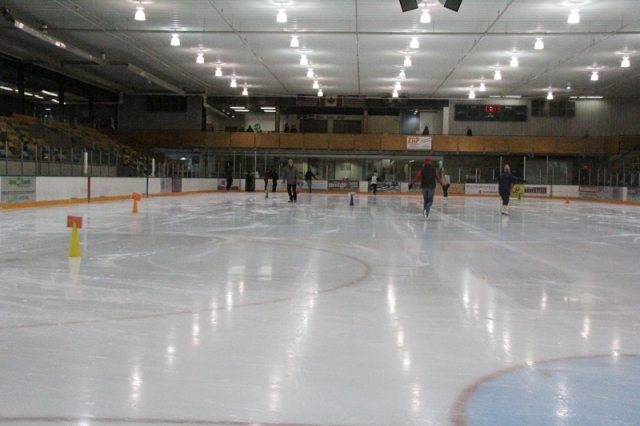Nelson, Castlegar selected as guinea pigs in new energy saving project
Two West Kootenay ice rinks are assuming the role of guinea pigs as the company REALice, in conjunction with FortisBC, looks to significantly reduce energy use and cutting CO2 emissions.
“At FortisBC, we promote the adoption of innovative, energy-saving technology across B.C. and we’re constantly investigating new ways to help our customers save energy and money,” Sarah Smith, Director of Energy Efficiency and Conservation at FortisBC said when asked why the power company became involved with REALice.
Smith said FortisBC has invested $300,000 to fund this pilot program to test the equipment, partnering with 10 ice rinks in cities and towns across the province and funding 100 percent of the associated costs.
The Nelson and District Community Complex Arena in the Heritage City and Castlegar Arena Complex in the Sunflower City are part of the pilot project.
Arena facilities in Delta, Richmond, Prince George, Duncan, Kamloops, Kelowna and Vancouver round out the ten projects.
Traditional ice resurfacing process involves heating up water to remove impurities and then cooling it down to freezing.
With the REALice equipment, the water is spun in a vortex, so doesn’t need to be heated up. By eliminating the need to heat the water, there’s the potential to significantly reduce the energy required to resurface ice.
“We anticipate that the 10 ice rinks will realize a combined natural gas savings of 28,489 gigajoules over the 10 year life of the equipment – the equivalent to heating about 316 homes, or taking almost 300 cars off the road for an entire year,” Smith explains.
The provincial project began at the beginning of December 2013 with the results set to be calculated in February.
The nice thing for Regional District of Central Kootenay taxpayers is FortisBC is picking up the cost for the study.
“FortisBC is funding the approximate $30,000 cost of purchasing and installing the equipment for the pilot study, which was installed in mid-January,” Smith said.
But the biggest question ice users are thinking is, will this cost saving come at the expense of users?
“FortisBC’s role in this pilot is as an objective observer,” said Smith.
“We’re tracking the quality of the ice through feedback from the ice operators and ice rink patrons. We have also installed monitoring equipment to measure and verify the manufacturer’s energy saving claims.”
“That being said,” Smith adds, “REALice technology is endorsed by the International Ice Hockey Federation. In fact, the 2014 World Junior Hockey championships (that just wrapped up) were played on ice made using the same equipment we’re testing in Nelson.”
For more information on the technology, go to REALice.


























Comments